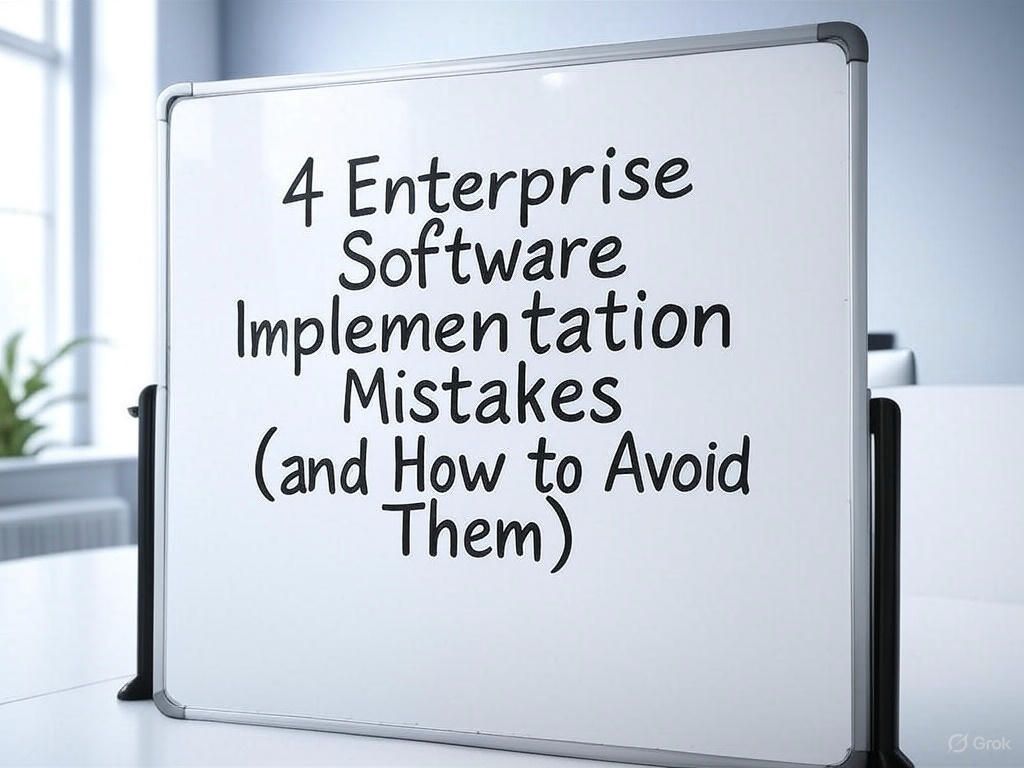Facing problems with your business’s tech? You’re not alone. A cloud ERP consultant can help. This article will show steps to tackle big tech issues in businesses. Keep reading to find out more.
Streamlining Financial Operations
Making money work smarter in businesses is key. Cloud ERP experts mix different book-keeping systems and make sure companies follow money rules, using tools like SAP S/4HANA and Oracle NetSuite to keep things smooth.
Integrating diverse accounting systems
Merging different accounting systems is a must for businesses. It helps all parts talk to each other. For example, SAP S/4HANA and Oracle Netsuite often need to work together. This makes sure that data from sales, supply chain, and HR are in one place.
We have worked with many companies on this. First, we look at what each system does well. Then, we create a plan to bring them together without losing any information. This includes moving data safely and checking that it’s accurate.
We use tools like Microsoft Dynamics 365 to make this easier.
This step saves time and money for the business. It also gives clear pictures of finances in real time, which is key for making good decisions fast.
Ensuring compliance with financial regulations
Cloud ERP consultants make sure businesses follow financial rules. They deal with laws that change often. This keeps companies safe from fines and problems. Consultants use tools like databases and software to track everything.
They help set up systems that report money matters correctly.
Consultants also train teams on new rules. They use online courses and mentorship to do this. This helps everyone understand what they must do. It makes following the law easier for businesses.
So, companies can focus more on their work and worry less about mistakes in managing money.
Enhancing Customer Relationship Management
Improving how businesses talk to their customers is key. By linking up sales, marketing, and support info, companies make every chat with a customer count.
Integrating sales, marketing, and customer service data
Cloud ERP systems bring sales, marketing, and customer service together. They make sure all data from these areas fit well together. This helps businesses understand their customers better.
For example, Oracle’s ERP software links with CRM tools to share info across the company.
Having sales, marketing, and customer support data in one spot makes it easier for businesses to see patterns. They can then make smart choices quickly. Microsoft Excel might be used to look at this combined data at first glance.
Then, deeper analysis happens with more powerful tools like Power BI.
This setup cuts down mistakes and saves time. Businesses can now act fast based on accurate data from different parts of the company.
Personalising customer interactions
Personalising customer talks makes everyone feel special. Cloud ERP consultants use data from sales, marketing, and service teams to do this well. They ensure all info is in one place.
This helps businesses understand what each customer likes or dislikes. With these details, companies can tailor their messages and offers directly to the customer’s needs.
For example, if someone often buys books on gardening from an online store, the store can send them emails about new gardening books or tools. This makes customers more likely to buy because they see things that interest them.
Cloud technologies like CRM (Customer Management Relationship) software make it easier for businesses to keep track of these preferences and act on them fast, offering a better shopping experience for everyone involved.
Optimising Supply Chain Management
Optimising supply chain management is key for smooth business operations. Cloud ERP consultants use tech tools like automated systems and analytics programs to make this happen, making sure products move efficiently from creation to customer.
Automating inventory and order management
Automating inventory and order management cuts costs and saves time. Software does the hard work, keeping track of items and orders efficiently.
- Use cloud-based systems to update stock levels in real-time. Cloud systems like Microsoft Azure ensure everyone sees the same data.
- Install sensors in warehouses. Sensors track items as they move, updating inventory without manual counts.
- Set up automatic reordering. When stock falls below a set level, the system orders more, making sure you never run out.
- Connect with suppliers online. This link makes ordering supplies faster and simpler.
- Apply data analytics for better forecasts. Analysing sales trends helps predict what will sell, reducing overstock.
- Integrate with other business process software development tools can connect inventory systems to finance or customer service platforms for smoother operations.
- Offer mobile access to staff. Apps let workers check stock or process orders from anywhere, improving productivity.
- Implement barcode scanning for quick updates and fewer errors compared to manual entry.
- Train staff on new tools and practices ensuring they can use them effectively increases efficiency.
- Keep data secure with robust database management system precautions like MySQL protect against data breaches.
These steps make managing inventory and orders faster, cheaper, and more accurate than old methods do
Reducing supply chain disruptions
Supply chain disruptions can halt business. Cloud ERP helps avoid such stops. Here’s how:
- It uses real-time data to track inventory levels.
- The system sends alerts before items run out.
- Cloud ERP automates re-ordering of supplies.
- It predicts demand spikes using past sales data.
- The tool connects all parts of the supply chain on one platform.
- This connection makes sharing updates easy and quick.
- Suppliers get automatic notices for order changes.
For example, a food company might see a sudden rise in demand for a popular snack before a big sports event. Cloud ERP can spot this trend, alert suppliers, and adjust orders early, preventing stock shortages.
Next, let’s explore how cloud ERP transforms customer service.
Source: iTTG Consultancy
Improving Business Intelligence and Reporting
Improving Business Intelligence and Reporting helps companies make smart decisions fast. It brings all your numbers into one place, so you can see what’s happening in your business right now.
Centralising data analytics
Centralising data analytics makes it easy for businesses to see all their important numbers in one place. This way, they can quickly find trends and make smart choices. For example, a business might use Oracle’s database management systems or SAP for this job.
These tools gather data from different parts of the company like sales, inventory control, and customer service. Then, they put it all together so managers can understand what’s happening now.
This setup helps with making quick decisions that are good for the business. Imagine an online shop sees from its data that a certain product is selling fast. The shop can then order more before running out.
Or if there’s a problem in shipping costs going up, the company sees it early and can act fast to solve the issue. By using technology for centralised analytics, companies save time and avoid mistakes by having real-time insights at their fingertips.
Providing real-time business insights
After gathering all the data, cloud ERP systems take it to the next level. They give businesses real-time insights. This means companies can see what’s happening right now in their operations.
It’s like having a bird’s eye view of your entire operation at any moment.
For example, if sales suddenly drop or inventory levels are low, the system alerts you straight away. It uses data from different parts of your business – sales, supply chain, and customer service.
Then, it puts all this information together quickly. This helps managers make fast decisions based on current facts. Cloud ERP tools like Oracle’s JD Edwards and PeopleSoft are champions at doing this job well.
Managing Human Resources and Talent
Handling team members and their skills is a big deal for businesses. Cloud ERP helps make hiring simpler and boosts how well staff do their jobs.
Streamlining recruitment and onboarding processes
Cloud ERP consultants play a big role in making hiring and starting jobs easier for companies. They use tech to find, hire, and teach new staff quickly.
- Set up online job posts on multiple platforms like LinkedIn to reach more candidates.
- Use software that sorts through applications to find the best ones faster.
- Create digital interviews that let people meet from anywhere, saving time.
- Keep all candidate info in one place with cloud storage so teams can look at it anytime.
- Set tasks for new hires before they start, using online tools to get them ready earlier.
- Teach new staff with virtual training sessions so they can learn at their own pace.
- Track how new hires do with easy-to-use software to help them improve.
- Use mobile apps to keep in touch with new staff, making sure they have what they need.
Next, we’ll talk about how these actions also boost how well employees do their jobs.
Enhancing employee performance management
Cloud ERP consultants know how to boost employee performance. They use tools like project management and analytical skills. These help manage tasks better. Staff can see clear goals and understand what they need to do.
This makes them work smarter.
Feedback is key here too. Systems track each person’s work, giving real feedback regularly. This helps employees improve quickly, aiming for their next targets with confidence. Plus, training becomes easier, making sure everyone’s skills are up to date for the job at hand.
Such direct approaches keep teams on their toes — always ready to tackle new challenges head-on.
Ensuring Successful Cloud ERP Implementation
Making sure a cloud ERP system works well is key. Experts customise solutions and help users learn how to use them.
Customising solutions to fit business needs
Cloud ERP consultants play a vital role. They tailor solutions to match each business’s unique needs. Here’s how they do it:
- Analyse the business model. Consultants study how a company works from top to bottom.
- Identify key areas for improvement. They find parts of the business that could work better with ERP.
- Choose the right cloud ERP software. Not all programs fit all companies. They pick the best one.
- Set clear goals. These aims align with what the business wants to achieve, like more sales or faster service.
- Design a plan for data migration. Moving info from old systems to new ones is big work.
- Ensure security measures are up-to-date. Keeping data safe in the cloud is crucial.
- Test before going live. This step makes sure everything works as it should.
- Train staff on how to use the new system effectively.
- Offer ongoing support and updates as needed.
By doing these things, consultants make sure that the cloud ERP system helps businesses meet their strategic objectives and get a good return on investment while facing fewer risks and disruptions during change management processes.
Providing training and support for users
Customising solutions for business needs paves the way for the next key step. Users must acquire the skills to use these tools competently. In this context, training and assistance are pivotal. Let’s see how advisors assist users to become proficient.
- Advisors pinpoint essential skills users need for the new ERP system.
They evaluate the tasks each individual performs and align them with required skills. - They formulate training plans for distinct roles.
As every individual uses the system distinctively, training is customised. - Training sessions are organised both virtually and physically.
This method makes learning adaptable for all employees. - Applying real-life scenarios during training improves user comprehension.
It exemplifies how their work will adapt with the new system. - Support teams are available to respond to queries post-training.
If someone encounters a problem, aid is readily available via call or email. - Online materials, such as guides and videos, are supplied.
Users can learn at their preferred pace or locate answers promptly. - Regular follow-ups ensure that staff are utilising the system correctly.
Advisors could detect issues or areas requiring additional training. - Feedback from users assists in refining future training.
If many individuals face difficulties with a particular area, it might warrant more focus in the future. - Advanced training for specific features is proposed to those who necessitate it.
Some staff may utilise specific system components that others don’t, hence requiring additional assistance. - Lastly, they ensure everyone is informed about updates or new features.
This keeps users informed and guarantees they’re always employing the most current tools.
Training and support transition a new ERP system from a hurdle into a boon for businesses, facilitating everyday tasks and enhancing productivity across departments.
Conclusion
Cloud ERP consultants tackle big tasks for businesses. They make financial operations smooth, improve how companies talk to customers, and keep supply chains running well. These experts also help firms understand their data better and manage people more effectively.
When a new cloud system starts, they ensure it fits the company perfectly and that everyone knows how to use it.
They face challenges like keeping data safe and making sure all users are happy with changes. Their job is key because they solve problems before they grow bigger. Consultants work hard so companies can focus on growing and serving their customers better.
With their help, businesses overcome hurdles in moving to cloud systems, making work easier for everyone involved.
FAQs
1. What is a cloud ERP consultant’s role in business?
A cloud ERP consultant plays an integral part in enterprise resource planning (ERP). They guide businesses from on-premises systems to agile, subscription-based SaaS models.
2. How does a CIO benefit from hiring a cloud ERP consultant?
Chief Information Officers (CIOs) can rely on consultants for their technology strategy. Consultants handle the extract/transform/load process and conduct needs assessments, freeing up the CIO for innovation.
3. What skills should I look for in a good Cloud ERP Consultant?
Look for problem-solving abilities, strong communication and leadership skills as well as knowledge of DevOps, Java programming and interfaces. Soft skills like collaboration and negotiation are also essential.
4. Can cloud ERP consultants assist end-users directly?
Absolutely! A big part of their job involves working with end-users to understand their needs better – this helps ensure that the system delivers real value.
5. Do these consultants help evaluate costs and benefits?
Yes, they do! From perpetual licenses to internet connection costs or asset management considerations – they’ll run through it all with you so you’re clear about what you’re signing up for.
6. Why would my Chief Technology Officer need to work closely with an ERP consultant?
Your Chief Technology Officer will find valuable allies in these consultants when it comes to aligning your tech strategy with your business goals… Plus, two heads are always better than one when solving complex problems!






